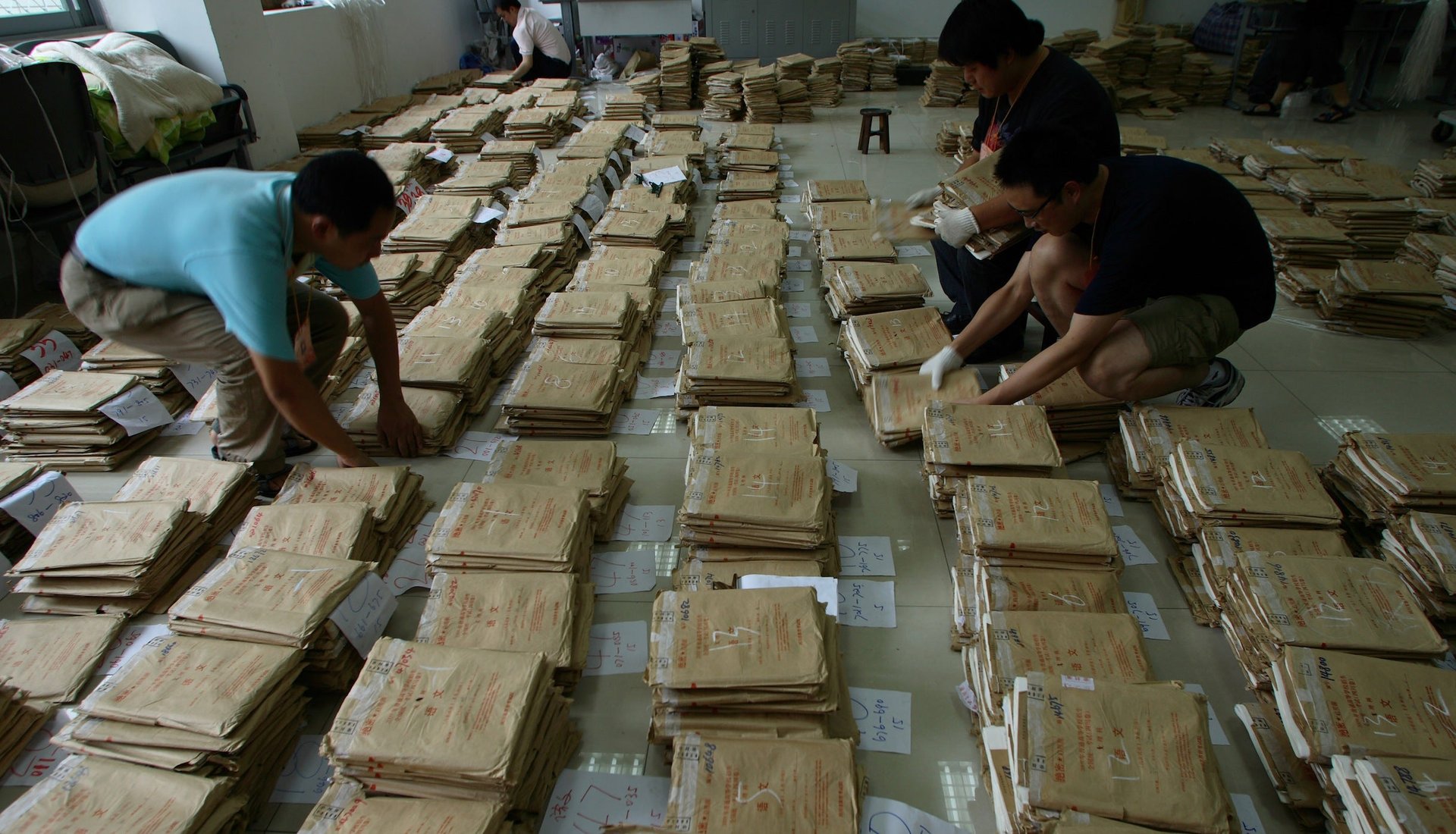Pollution levels, accounting records, and other things China classifies as “state secrets”
In China, anything the government does not want the public to know can be labeled a “state secret.” This not only produces indignation in China, it also frustrates American financial regulators and frightens foreign executives working in the country. According to law firm Jones Day, China’s state secrets law “is as vague as it is broad”, but government departments and law enforcement authorities have “almost unlimited discretion” in applying it.


In China, anything the government does not want the public to know can be labeled a “state secret.” This not only produces indignation in China, it also frustrates American financial regulators and frightens foreign executives working in the country. According to law firm Jones Day, China’s state secrets law “is as vague as it is broad”, but government departments and law enforcement authorities have “almost unlimited discretion” in applying it.
Lately, the Chinese government has invoked the “state secret” defense to try and dampen public outrage about the country’s dangerously high pollution levels. Earlier this week, the nation’s environmental agency refused a lawyer’s request to publish full results of a major soil pollution study on these grounds.
The issue has lit up Chinese social media. A search under the term “soil pollution” (土壤污染 or turang wuran) on Chinese microblogging site Sina Weibo brought up nearly a million results when it was tried earlier today (the totals vary, possibly because of censorship). One Weibo user with the handle “meifung” commented ”the soil pollution data must be very bad if the environmental protection agency does not dare to publish it.” Another, named “pernason”, asked rhetorically: “can you tell me what isn’t considered a state secret?” (Note: you need to be registered on Weibo to see the posts.)
Here are a few more examples of what China’ state secrets law has covered in the past:
1) Oil industry data. In 2011, American geologist Xue Feng lost an appeal against his eight year conviction for stealing Chinese state secrets by purchasing an oil industry database on behalf of his employer, US consultancy IHS Inc. The database contained detailed information on China’s oil sector, which is dominated by government-backed companies. But Xue argued the information he purchased was already publicly available.
2) Chinese companies’ accounting records. America’s Securities and Exchange Commission has launched fraud investigations into several US-listed Chinese companies and ordered their China-based auditors to hand over documents. Auditors are refusing to give up their files on the basis of an argument—so far unchallenged by Chinese authorities—that Chinese corporations’ accounts are state secrets. So Chinese companies whose shares trade in the US are effectively shielded from being investigated by regulators for fraud. That is worrying, as so-called “red collar crime” is believed to be commonplace among US-listed Chinese firms.
3) Exam papers. In 2009, a group of Chinese teachers and parents were jailed for helping children cheat in the college entrance exams known as gaokao by using high-tech scanners and earpieces to transmit test answers to the kids while they were sitting in the examination hall. The group bribed a teacher to fax them the test papers. China considers college entrance exam papers a state secret.
4) Executions. Human Rights Watch believes China leads the world in the number of executions it carries out, which the NGO estimates is 5000-8000 per year. The Chinese government often claims it is sentencing fewer prisoners to death. But as execution data remain a state secret, it is hard to tell whether this is true.